Mozambique
Internally displaced persons in Mozambique have been recounting horrific stories of beheadings and rape.
Officials from the United Nations High Commissioner for Refugees visited a camp in northern Mozambique.
The camp houses people who fled insurgent attacks. The UNHCR is now sounding the alarm over the 670,000 displaced persons.
"I left because of the war that affected us. It was at night so we fled and went into the bush. We stayed four days in the bush looking for a way out and running away from the conflict", Herculano, an Internally displaced person from Quissanga said.
During the visit to Cabo Delgado, officials of the UNHCR lament the slow response by government and the international community.
"There are tragedies of an almost unspeakable kind. I've been speaking to the women here who've agreed to speak to me and they are caring for other people's children. I spoke to a grandmother whose daughter was killed during the conflict and the father of the child was beheaded and the grandmother is now caring for that child", Gillian Triggs, UNHCR’s Assistant High Commissioner for Protection said.
The UN body describes the situation as desperate, while appealing for more resources. Triggs also said via Twitter that ‘’ What is happening in the north of Mozambique is a humanitarian tragedy’’.
Violence escalated in the region last year, prompting a humanitarian crisis similar to the end of Mozambique's 16-year civil war that ended in 1992.
The crisis was worsened by floods and Cyclone Kenneth which struck in 2019.
Access to Cabo Delgado has been hampered by insecurity and poor transport networks.
The insurgency has killed at least 2,600 people, half of them civilians, according to the US-based data collecting agency Armed Conflict Location and Event Data (ACLED).




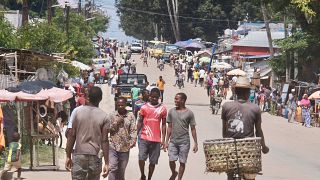
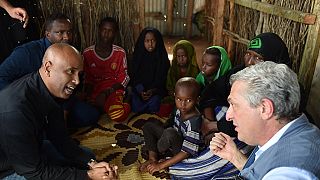
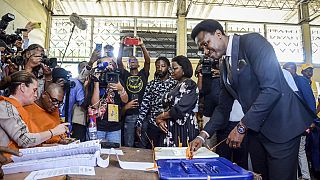
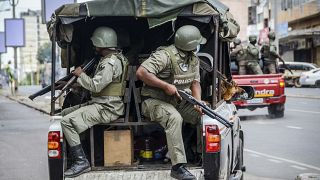
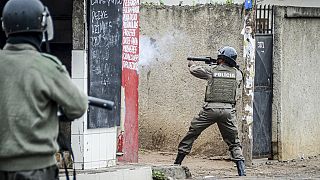



01:14
Hundreds dead, thousands infected in Sudan's months-long cholera outbreak
01:12
Deaths in war-torn Sudan significantly higher than previous tolls, according to new report
01:07
Sudan keeps key aid crossing from Chad open to keep humanitarian aid flowing
01:00
Sudan war: UK, Sierra Leone to propose new resolution calling for 'end of hostilities'
02:19
Thousands of refugees in Uganda struggle to get by, amid cuts in humanitarian aid
02:17
Nearly 500 million children live in conflict zones, face violations - Report